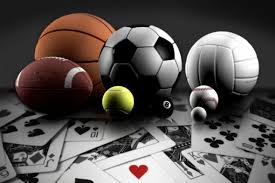
How to Improve Your Poker
If you are looking to enhance your poker skills, How to improve your poker Krikya casino is a great resource where you can find valuable insights and strategies. Poker is a game that requires not only luck but also a deep understanding of the game mechanics, psychological tactics, and optimal strategies. In this article, we will explore various ways to improve your poker game, from fundamental principles to advanced techniques.
1. Understand the Rules and Hand Rankings
The first step in improving your poker game is to have a solid understanding of the basic rules and hand rankings. Each variant of poker, whether it be Texas Hold’em, Omaha, or Seven Card Stud, has its unique rules that you should familiarize yourself with. Knowing what beats what in terms of hand rankings is essential for making informed decisions during a game. The standard hand rankings from highest to lowest are:
- Royal Flush
- Straight Flush
- Four of a Kind
- Full House
- Flush
- Straight
- Three of a Kind
- Two Pair
- One Pair
- High Card
2. Learn Basic Strategies
Once you are comfortable with the rules, you should start learning basic poker strategies. This includes understanding when to play aggressively and when to be more conservative. One common strategy is the concept of “tight-aggressive,” which means you play fewer hands but play them aggressively. This strategy can help you win more pots without losing too much money on weaker hands.

3. Study Position at the Table
Your position at the poker table can significantly influence your playing style and strategy. Players who act later in the betting order have more information about their opponents’ actions, allowing them to make more informed choices. Understanding the importance of position will help you decide whether to fold, call, or raise based on your hand and the players still in the game.
4. Practice Bankroll Management
Effective bankroll management is crucial to ensure that you can play poker over the long term without risking too much of your money at any given time. Set a budget for how much you are willing to spend at the poker table, and stick to it. A good rule of thumb is to only play with chips you can afford to lose. Additionally, avoid playing at stakes that are too high for your current bankroll.
5. Study Your Opponents
Understanding your opponents’ playing styles will give you a significant advantage at the poker table. Pay attention to how they play different hands and try to categorize them into types, such as loose, aggressive, or tight. By gauging their tendencies, you can exploit their weaknesses and adjust your strategy accordingly.
6. Utilize Poker Training Tools
There are numerous online resources and poker training tools available that can help you improve your skills. Websites offer strategy tutorials, hand analysis, and even simulated play scenarios. Programs like poker solvers can help you analyze your play in-depth. Utilizing these tools can significantly shorten your learning curve and advance your game to the next level.
7. Analyze Your Hand History

After playing a session, take the time to review your hands. Most online poker sites provide players with hand history, which allows you to analyze your decision-making process. Focus on hands where you lost money and reflect on whether you made the best decision given the circumstances. Look for patterns in your play that you can improve upon. Continuous self-assessment is key to growth in any skill, including poker.
8. Control Your Emotions
Poker is not just a game of strategy; it is also a psychological battle. Managing your emotions is critical, especially during periods of variance where you may experience losing streaks. Avoid going on “tilt,” a state of emotional distraction that can lead to poor decision-making. Develop techniques to keep your emotions in check, such as taking breaks when necessary and maintaining a positive mindset.
9. Join a Poker Community
Engaging with fellow poker players can provide valuable insights and motivation. Join forums, social media groups, or local poker clubs where you can share experiences, discuss strategies, and gain helpful feedback on your gameplay. Many successful players attribute parts of their success to learning from others in the community.
10. Continuously Adapt and Evolve
Finally, one of the most important aspects of improving your poker game is the willingness to adapt and evolve. The game of poker is continually changing, with new strategies and techniques emerging all the time. Stay up to date on trends, study advanced strategies, and be willing to change your play style if you find it necessary. Adaptability will keep you competitive, whether you are playing in casual home games or high-stakes tournaments.
Conclusion
Improving your poker game is a journey that requires time, effort, and dedication. By understanding the fundamentals, studying your opponents, and continuously practicing and reflecting on your gameplay, you can develop the skills necessary to increase your chances of winning. Remember, the path to becoming a great poker player is filled with learning and growth—embrace the process, and your poker game will surely improve.


